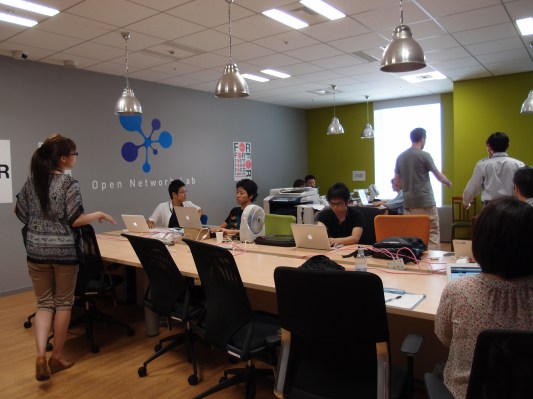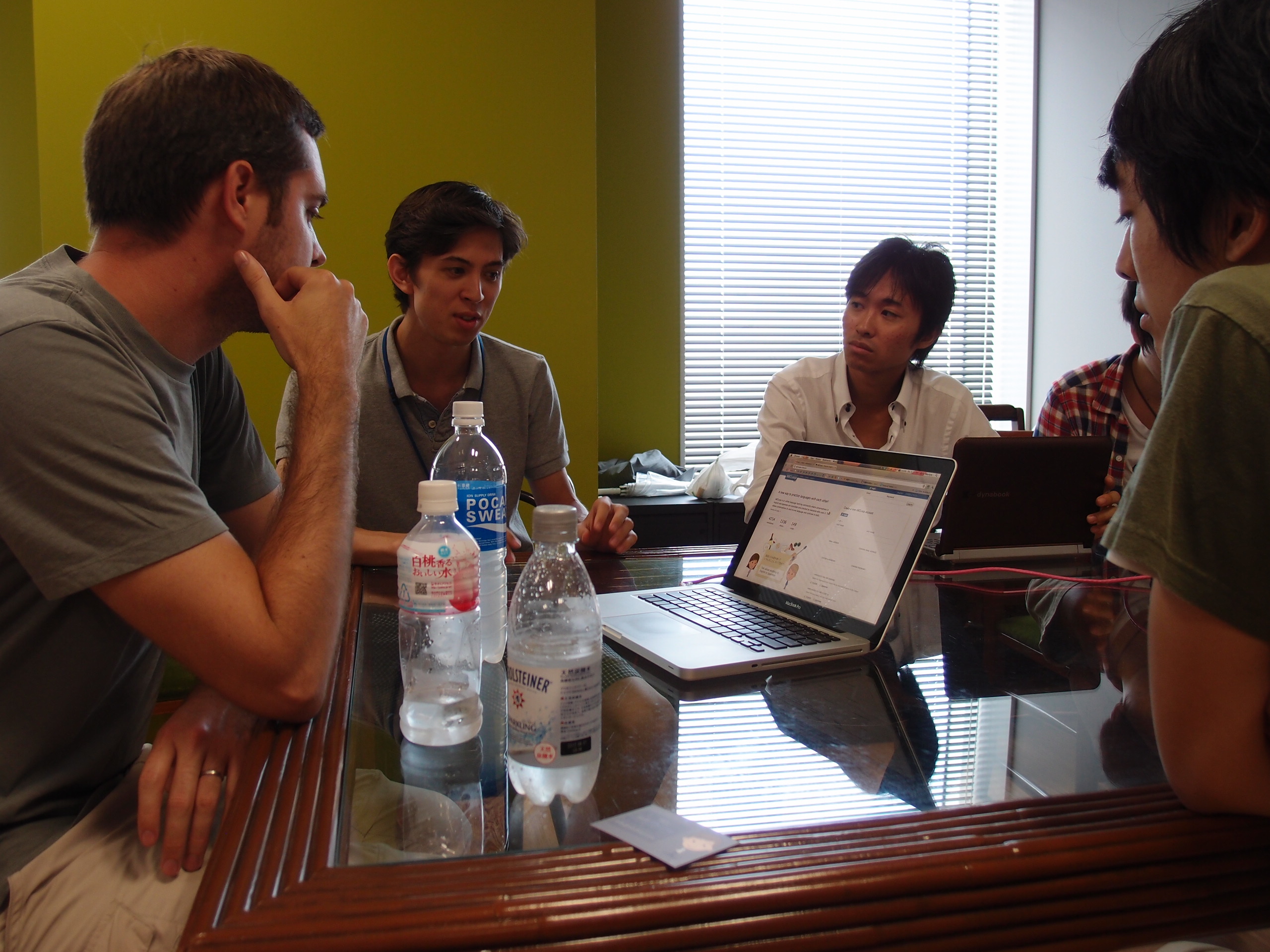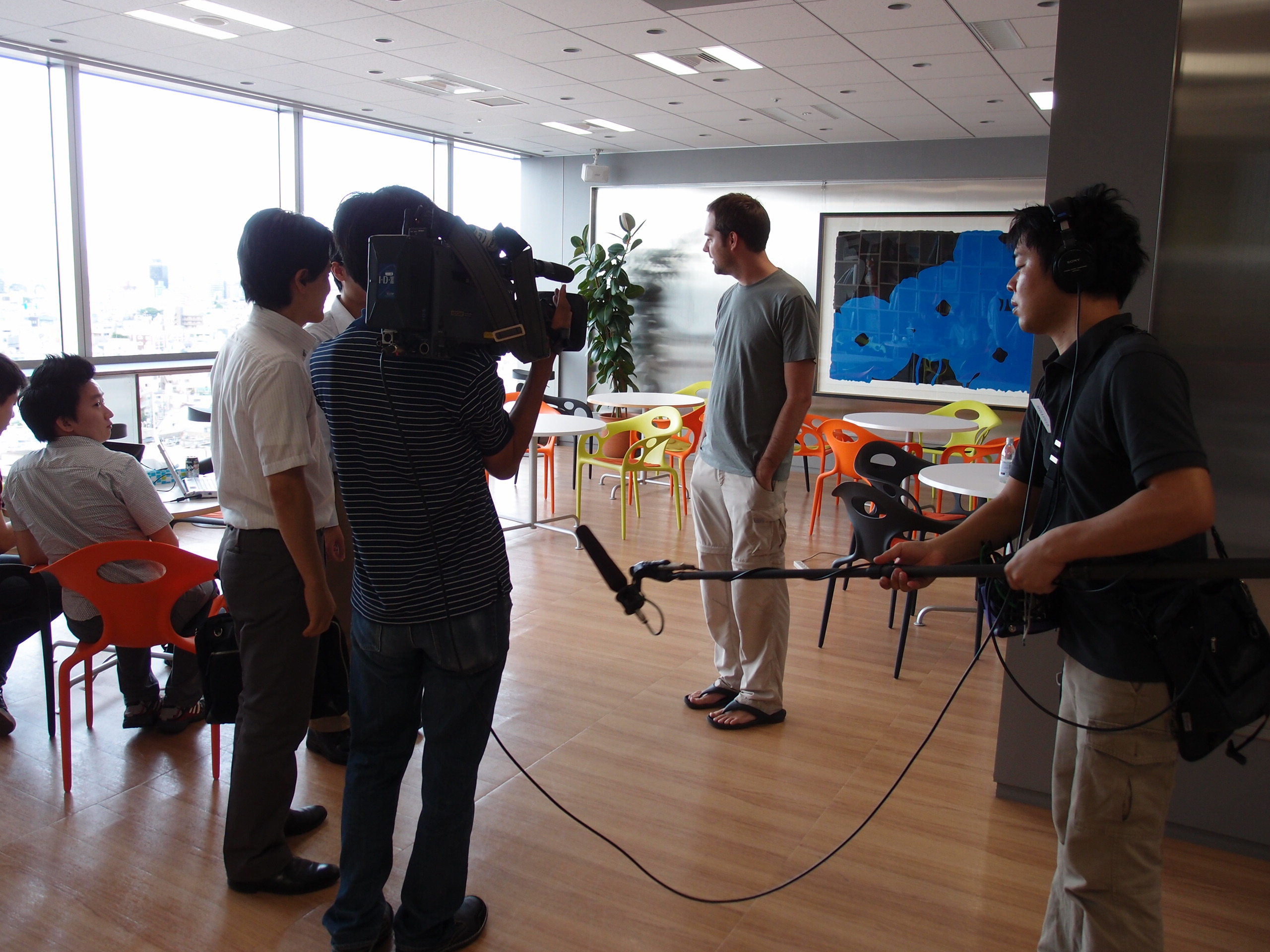Editor’s Note: This is a guest post by Brenden Mulligan, entrepreneur and creator of Onesheet, who is currently traveling around the world meeting startups with his wife and IDEO designer Elle Luna. You can follow him on Twitter here: @bmull.
Before coming to Japan, we asked everyone we knew for advice on how to connect with the startup community in Tokyo. Every recommendation pointed at the exact same place: Open Network Lab.
Open Network Lab (“Onlab”) is a Japanese startup incubator in the same vein as Y Combinator or TechStars. The incubator provides startups with mentorship, office space, and a small amount of cash in exchange for a piece of equity. This model is popular in the United States, and leading Japanese internet company Digital Garage (investors in Twitter, Path, and more) wanted to try it in Japan. Onlab is currently in its second year of operation has incubated three batches of startups. Even though it’s a young program, they are already making an noticeable impact on the Japanese startup community.
We spent our first hour talking with Hironori (Hiro) Maeda, the guy in charge of overseeing the incubator’s operations. Hiro grew up in Japan and attended an international school before going on to study computer science at Bucknell University. After college, he launched a startup of his own, and several years later was asked to return to Japan to help build and run Onlab as a way to move the Japanese entrepreneurial community forward.
But developing that community has its cultural challenges. “Launching a startup, where there is a lot of uncertainty and unsuitability, does not fit a culture where harmony and stability are strongly emphasized,” Hiro told us. “However, a lot of younger Japanese are realizing that the nation itself is at uncertainty. The employment rate of college graduates have reached the lowest point in the past decade and the Japanese earthquake has made the people in entire nation uncertain about their future. The uncertainty and the increasing interest of the success that Silicon Valley is experiencing has made more younger Japanese take bigger risks.”
This has led to a ton of interest in Onlab from both entrepreneurs and the general public. This interest doesn’t come without its hurdles, however. Even though the community is willing to take risks, Hiro says it’s just not quite ready to be as transparent as entrepreneurs in other parts of the world.
“Entrepreneurs in Japan haven’t realized the benefits of transparency and sharing information. People are afraid of sharing ideas and experiences — thinking that it is their only competitive advantage”, he said.
In more mature startup communities like Silicon Valley, entrepreneurs share their war stories on a regular basis. And they don’t hide their failures, but instead embrace them and try to help others avoid it. Hiro knows this, and is fostering the same type of communication with his startups: “We encourage failed entrepreneurs to move on to their next idea and hope that they will see their failure as an experience they can take advantage of for their next venture.”
Hiro also requires his startups to get together at least once a week to discuss ideas that have worked, tasks that they found challenging, and points in they’re development where they’re getting stuck. Although it doesn’t necessarily come naturally, it’s working. Hiro says these sessions are getting better and better and the entrepreneurs are seeing the value in openness and transparency.
And Japan is taking notice.
When we were there, national network Tokyo TV was spending the day filming the lab and talking to the startups. When they found out some people from Silicon Valley were visiting too, they asked us to sit down for an interview. Most of the questions were around whether or not Japan had the ability to compete with Silicon Valley and whether Onlab could work. Overall, my responses were that it was already working. People are learning about this community all over the world and Onlab has started to put the Japanese entrepreneurial community on the map.
We also spent a few hours talking to and mentoring the startups (listed below). Overall, the companies were on par with the types of startups you see in the Bay Area’s incubators. There was an impressive focus on design and user experience and most had well-fleshed out business models and quality prototypes. As a taste of what Onlab has been producing, here is a quick look at a few of the incubator’s current startups:
Giftee
Giftee has built a platform that allows people to send each other gift certificates for physical goods. They’re responding to the gifting trend, and already have deals in place with some major brands in Japan, including Muji.
FindJPN
FindJPN is the AirBnB for Japanese experiences. They focus on providing a marketplace for some of the best excisions, experiences, and events that tourists to Japan can easily purchase via their website.
ABCLoop
ABCLoop is building a language learning community that enables people help each other learn a foreign language in very short, direct interactions. The site gathers the lessons in Loops, which are conversations around a particular topic.
Pirka
Pirka has built a mobile app that inspires people to help pick up litter around them, by giving users a social network to post photos of what they’ve picked up. They’ve already recorded over 20,000 pieces of trash picked up in 20 countries.
Dressful
Dressful is building a social shopping network for working woman, where they are recommended new items by Dressful according to their taste profile and also by their friends through a mobile app.
Mieple
Mieple is building a new way to meet people through your social connections. Think about it as LinkedIn Introductions for the entire web.
Our advice: Pay attention to what Onlab is doing and expect to see it develop and inspire a new generation of Japanese entrepreneurs.


